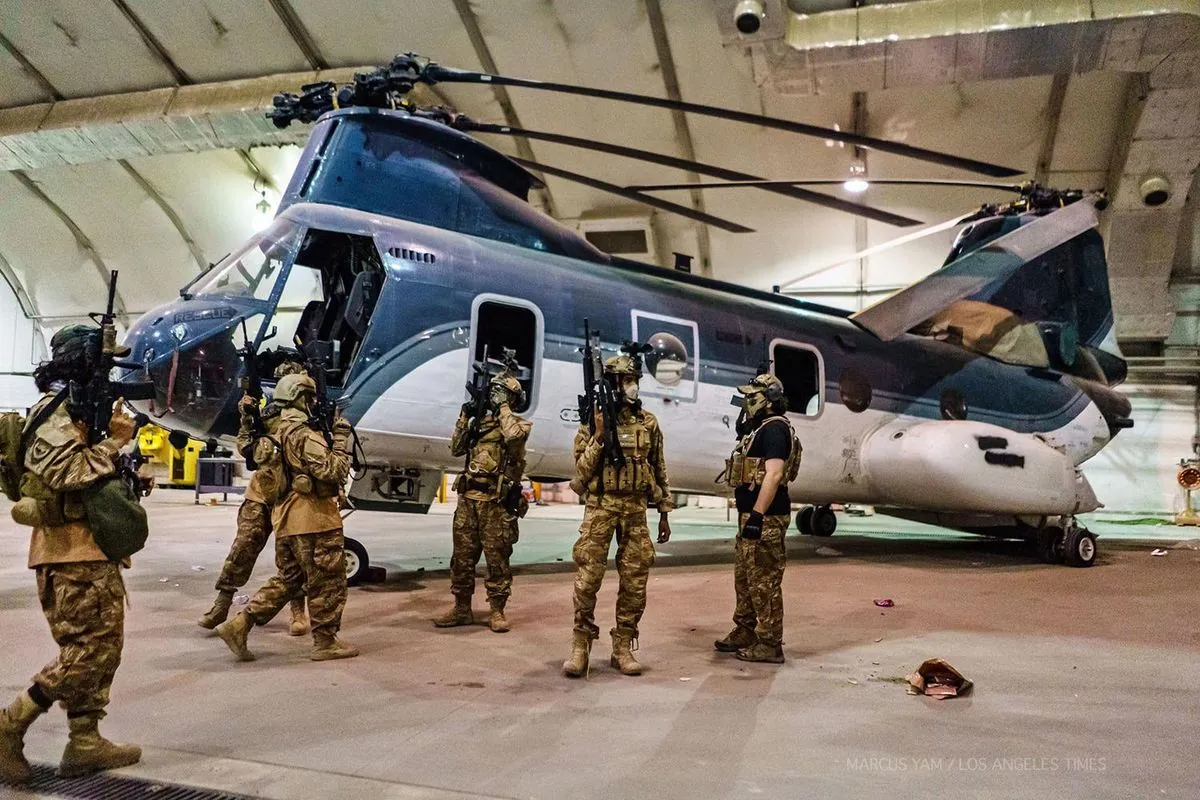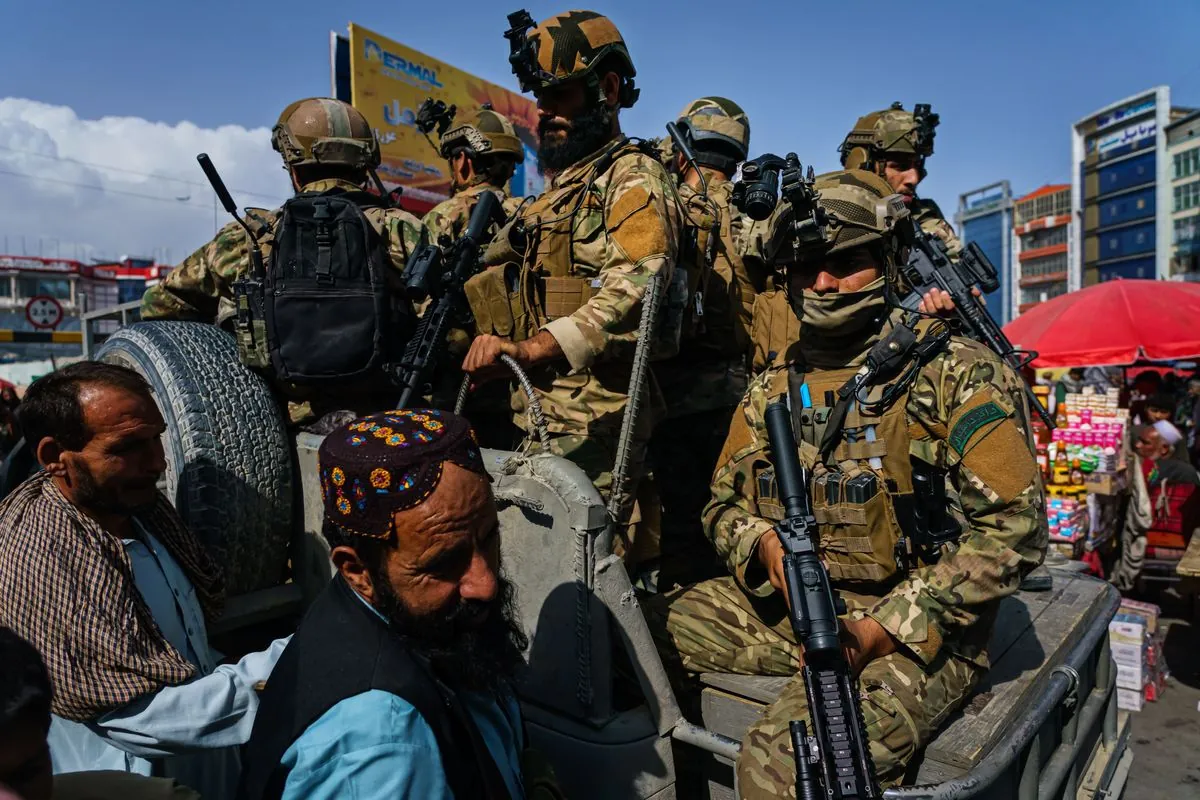Taliban's Arsenal: Filmmaker Unveils US Weapons Left in Afghanistan
Egyptian documentarian Ibrahim Nash'at's "Hollywoodgate" reveals Taliban's discovery of abandoned US military equipment in Afghanistan, offering a chilling glimpse into the aftermath of America's withdrawal.

Three years ago, Egyptian filmmaker Ibrahim Nash'at ventured into Afghanistan shortly after the US withdrawal, capturing a unique perspective on the Taliban's takeover. His documentary "Hollywoodgate" provides a rare glimpse into the aftermath of America's longest war, which lasted nearly two decades and cost over $2 trillion.
Nash'at's year-long journey focuses on Air Force Commander Mawlawi Mansour and Lieutenant M.J. Mukhtar as they explore abandoned US military installations. The film's title, derived from a stenciled door at a former CIA base, sets the stage for a narrative that unfolds like a slow-burning thriller.
The documentary reveals the extent of equipment left behind by US forces. Beyond functional gym equipment and medical supplies, the Taliban discovered an estimated $7.12 billion worth of disabled military hardware, including Black Hawk helicopters, bombers, and armored vehicles. This revelation comes three years after the US completed its withdrawal on August 31, 2021.

"Hollywoodgate" culminates in a chilling display of rehabilitated US weaponry during a parade marking the first anniversary of the Taliban's return to power. This event, attended by representatives from countries like Russia and Pakistan, echoes similar displays by authoritarian regimes throughout history.
The film offers insights into the Taliban's governance and ideology. Mansour is shown vetting pilots from the previous regime, while Mukhtar expresses a desire for martyrdom. Their comments on women's rights, including comparisons to unwrapped candy, reflect the ongoing challenges faced by Afghan women, who already suffer from one of the world's lowest literacy rates.
Nash'at's mission was fraught with danger, as evidenced by hostile comments from Taliban members suspicious of journalists. Despite these challenges, he managed to capture nuanced moments, such as Mansour's uncertainty about the religious basis for face-covering mandates.
"What I tried to show is what I saw. Because I held this camera, I was kept away from the daily suffering of the Afghans. Yet I feel it everywhere I go. Inside all the gates I went through, one thing I cannot move past is the obscene power of those who worship war, and the pain that it causes for generations."
"Hollywoodgate" serves as a somber reflection on Afghanistan's complex situation. The country, with its rich mineral resources and strategic location bordering six nations, continues to grapple with the aftermath of decades of conflict and foreign interventions. As one of the world's youngest populations faces an uncertain future, Nash'at's documentary stands as a testament to the enduring impact of extremism and the human cost of war.


































